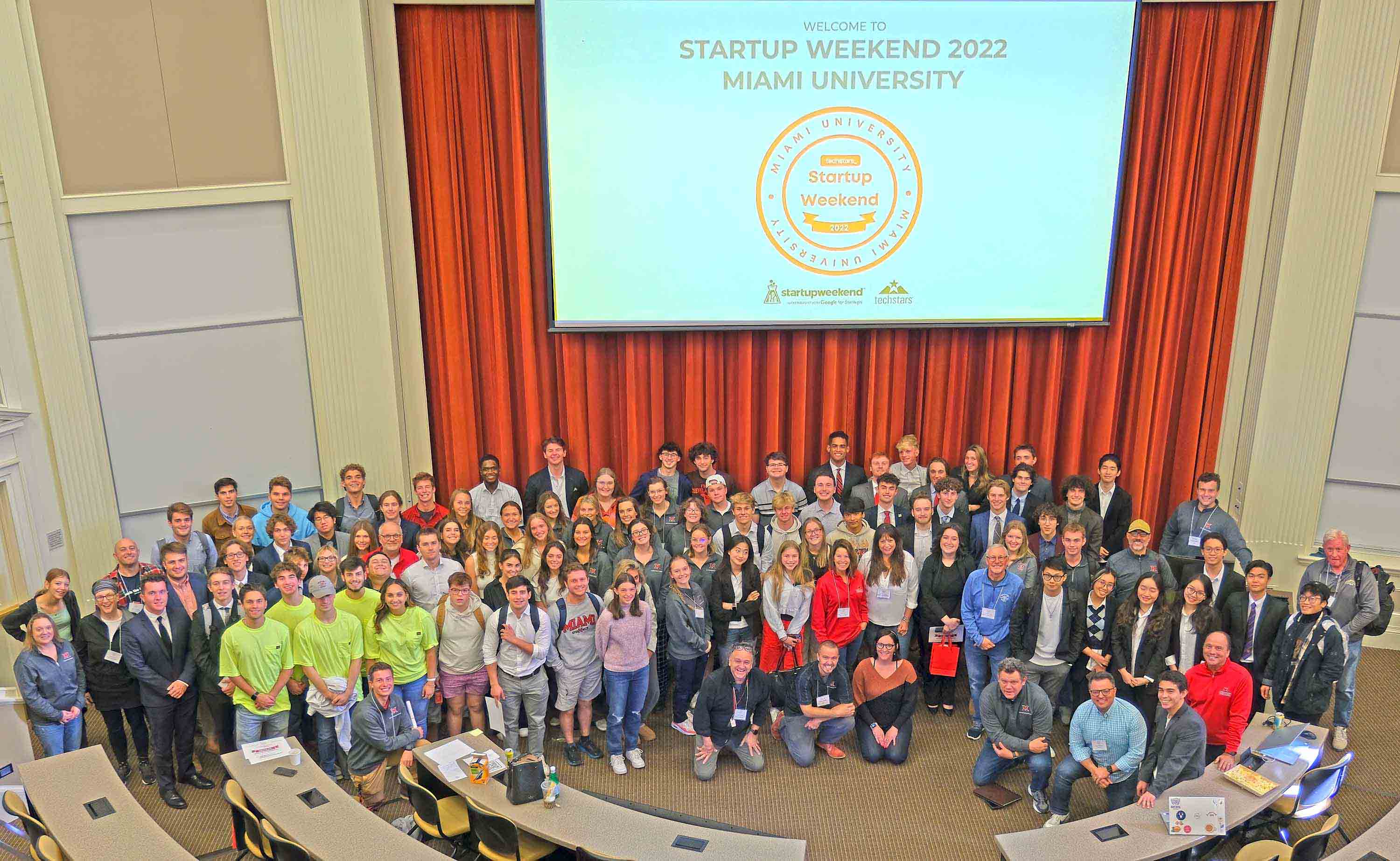FSB entrepreneurship program among top 10 in world in new Princeton Review rankings
This is the first year for the program to rank in the top 10 overall, and the 15th year the program is in the top 10 public undergraduate programs

FSB entrepreneurship program among top 10 in world in new Princeton Review rankings
The Farmer School of Business John W. Altman Institute for Entrepreneurship reached new heights in the latest undergraduate entrepreneurship program rankings by Princeton Review, coming in at No. 9 in the world and No. 5 among public colleges and universities.
It’s the 15th year in a row that the FSB entrepreneurship program has ranked among the top 10 public institutions, but the first time to be one of the top 10 overall.
Jenny Darroch, Farmer School dean and Mitchell P. Rales Chair in Business Leadership, remarked, “One of our core beliefs is that if you do the right things, results will follow. This ranking is certainly proof that the program our entrepreneurship faculty have created, and alumni and ecosystem partners have supported, is exceptional.”
“While we are pleased to see Miami’s undergraduate entrepreneurship program ranked among the top 10 entrepreneurship programs in the world, we are especially proud of the success our graduates achieve after they earn their degree at Miami,” entrepreneurship program chair and professor Tim Holcomb said. “Rankings aside, we believe one of the best measures of a program’s impact is the success its graduates experience.”
The program, founded less than 30 years ago, focuses on “learning by doing,” applying a practice-based, immersive model of entrepreneurial learning that incorporates play, empathy, creation, experimentation, and reflection. The program has a 100% placement rate for internships which allows students to gain experience solving real-world problems.
The overwhelming majority of the program's faculty have entrepreneurship experience. Combining that with a highly engaged alumni base who mentor students, serve as competition judges and frequently speak to classes and student groups, results in students graduating beyond ready to successfully launch their careers.
The department ensures that its students build relationships with potential funders by purposefully integrating curricular and co-curricular programs with entrepreneurial ecosystem builders across the U.S. in ways that provide students the ability to network with hundreds of angel investors, venture capitalists, accelerator directors, founders, social impact entrepreneurs, and ecosystem builders.
Among the program’s recent notable accomplishments:
- 4,510 students (27.4% of the Miami University undergraduate population) took at least one entrepreneurship-themed course, including at least one student from every undergraduate major for the third consecutive year.
- 1,043 students participated in one or more of the Altman Institute’s 12 co-curricular programs, including Techstars® Startup Weekend, Social Innovation Weekend, World Creativity and Innovation Week/Day, and Advancing Women in Entrepreneurship (AWE), among others.
- 582 Student-founders created 145 actionable business models that led to 39 student-led startups launched and raised more than $200,000 in pre-seed and early-stage funding from Dorm Room Fund, Rough Cut Ventures, and Soma Capital, among others.
- 394 Miami alumni and startup and business ecosystem professionals engaged with entrepreneurship students across campus.
- Awarded $150,000 in scholarships to entrepreneurship co-majors and minors.
- Awarded $155,000 in cash and in-kind gifts to business model winners and student-founders of high growth startups and social ventures.
- Student-investors from Altman Institute’s two student-managed funds (Redhawk Ventures and the Social Impact Fund) invested $75,000 in two companies: Houston-based PlaneAhead and Cincinnati-based Blue Ocean Solids.
“Over the past decade, Miami alumni have founded and/or led more than a dozen companies with a market valuation of $1 billion or more. They include Sean Lane at Olive, Nichole Mustard at Credit Karma, Clint Jones and Brandon Cruz at GoHealth, Dwight Merriman at DoubleClick and at MongoDB, and Matt Pyatt and Eric Dunigan at Arrive Logistics to name a few,” Holcomb said. “These alumni are joined by dozens of recent graduates that started their current high growth companies as side hustles while students at Miami—including Michael Markesbery and Rithvik Venna, cofounders of Portland-based OROS; Oliver Zak and Selom Agbitor, cofounders of Los Angeles-based Mad Rabbit; Austin Mace, founder of Austin-based Subvrsive; Tsavo Knott and Mack Myers, cofounders of Pieces.app, and Cristion Brown, founder of Hypernova Technologies, both of Cincinnati.”
Now in their 17th year, The Princeton Review creates the rankings from the results of a survey that asks schools to report on levels of their commitment to entrepreneurship studies inside and outside the classroom, using more than 40 data points. Topics included the percentage of faculty, students, alumni actively and successfully involved in entrepreneurial endeavors, the number and reach of mentorship programs, scholarships and grants for entrepreneurial studies, and the level of support for school-sponsored business plan competitions.